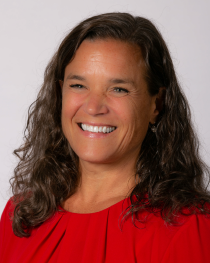States continue to have a strong interest in sustaining, developing, and partnering with the community health worker (CHW) workforce. During the COVID-19 pandemic, an influx of federal funding supported CHW services and infrastructure. With that grant funding coming to an end, states are seeking sustainable financing approaches to maintain and grow access to CHW services and supports.
NASHP’s updated 50-state tracker provides a lens into state strategies across the country to achieve those goals. State policymakers are more intentionally partnering with CHW partners and allies to develop strategies to sustain the workforce. A growing number of states are using Medicaid levers to pay for CHW services, aligning Medicaid approaches with other funding mechanisms, and advancing professional development standards, training, and certification to pay for CHW services.
NASHP’s research for the 2023 updated tracker, along with ongoing state engagement through a state learning collaborative and individual state technical assistance, informed key trends and topics related to Medicaid reimbursement, training and certification, and definition of the workforce. The update includes state activity in the following categories:
- State CHW Definitions
- Certification and Training
- Medicaid Reimbursement
- Other Funding or Financing Mechanisms
- Key Partnerships
- State CHW Legislation
Medicaid Approaches
As states work toward sustainable financing for the CHW workforce — which represents and assists people from low-income and underserved communities — leveraging Medicaid strategies is key. Increasingly, states have opted to make CHW services reimbursable under state plans. When NASHP last updated the 50-state tracker in 2021, six states had state plan amendments (SPAs) in place authorizing Medicaid reimbursement for CHW services. As of December 2023, 15 states have approved SPAs, with several others indicating that a SPA is in development or that there is a legislative mandate to introduce one in the future.
Learn More about SPAs
Read NASHP’s blog post for more information about CHW Medicaid financing through state plan amendments.
States also use other Medicaid strategies and levers to support CHW services in an effort to reach target populations and improve health. A handful of states have active 1115 demonstration waivers that support CHW activities for specific populations or fund managed care organizations (MCOs) to pilot CHW interventions. A few states encourage, allow, or require MCOs to offer CHW services by hiring CHWs or contracting with CHW employers (often community-based organizations). Several states also reported that MCOs in the state may be using administrative funds to pay for CHW services that support case management. For examples of state Medicaid approaches, see NASHP’s 50-state tracker.
Certification
While not every state has chosen to pursue certification, around half of states have opted to define standard qualifications for CHW services through certification programs that are either implemented by the state or another entity, such as a state CHW association or third-party certification board.
One emerging theme is a growing interest in certification programs led by state CHW associations, which are uniquely situated to understand workforce needs and key qualifications. For example, the South Carolina CHW Credentialing Council (SCCHWCC), approves educational programs and administers South Carolina’s certification program and core competency training for CHWs. SCCHWCC is led by the South Carolina CHW Association and includes representation from state health officials.
CHW certification, or in some cases a state-recognized training curricula, remains a central approach to defining CHW qualifications for Medicaid reimbursement — and soon, Medicare reimbursement as well. The 2024 Medicare Physician Fee Schedule added a CHW benefit for Medicare beneficiaries. Because there is no national CHW certification program, eligibility for Medicare reimbursement will rely in part on state-recognized CHW qualifications. In states that do not have CHW certification or standardized training, the Centers for Medicare and Medicaid Services (CMS) plans to rely on training that aligns with CHW Core Consensus Project (C3 Project) standards.
Definitions
At the state and federal level, there is increasing interest in ensuring that the CHW workforce is defined accurately and consistently to support hiring practices and program design that match the lived experiences and skills of CHWs. Many states that have a CHW definition use or adapt the American Public Health Association (APHA) definition, which was developed with input from CHWs across the nation.
APHA Definition of Community Health Worker
A community health worker is a frontline public health worker who is a trusted member of and/or has an unusually close understanding of the community served. This trusting relationship enables the worker to serve as a liaison/link/intermediary between health/social services and the community to facilitate access to services and improve the quality and cultural competence of service delivery. A community health worker also builds individual and community capacity by increasing health knowledge and self-sufficiency through a range of activities such as outreach, community education, informal counseling, social support, and advocacy.
CHW definitions serve both educational and regulatory purposes and are a key first step in supporting broader understanding about how CHWs fit into the health care and public health landscape. See NASHP’s updated 50-state tracker for a nationwide look at how states have defined the CHW workforce.
NASHP will continue to monitor updates regarding state CHW models with emphasis on approval and implementation of SPAs and other Medicaid approaches, certification and training standards, and definitions. In addition to tracking state policies, NASHP is also supporting state CHW activities via technical assistance and a learning collaborative for state officials that convenes every other month. Email Megan D’Alessandro or Elinor Higgins if you are interested in learning more about these efforts.
Acknowledgements
Support for this work was provided by the Robert Wood Johnson Foundation. The views expressed here do not necessarily reflect the views of the foundation. NASHP would like to acknowledge and thank Carl Rush, principal consultant for Community Resources, LLC., for his contributions that supported the development of this blog post.





